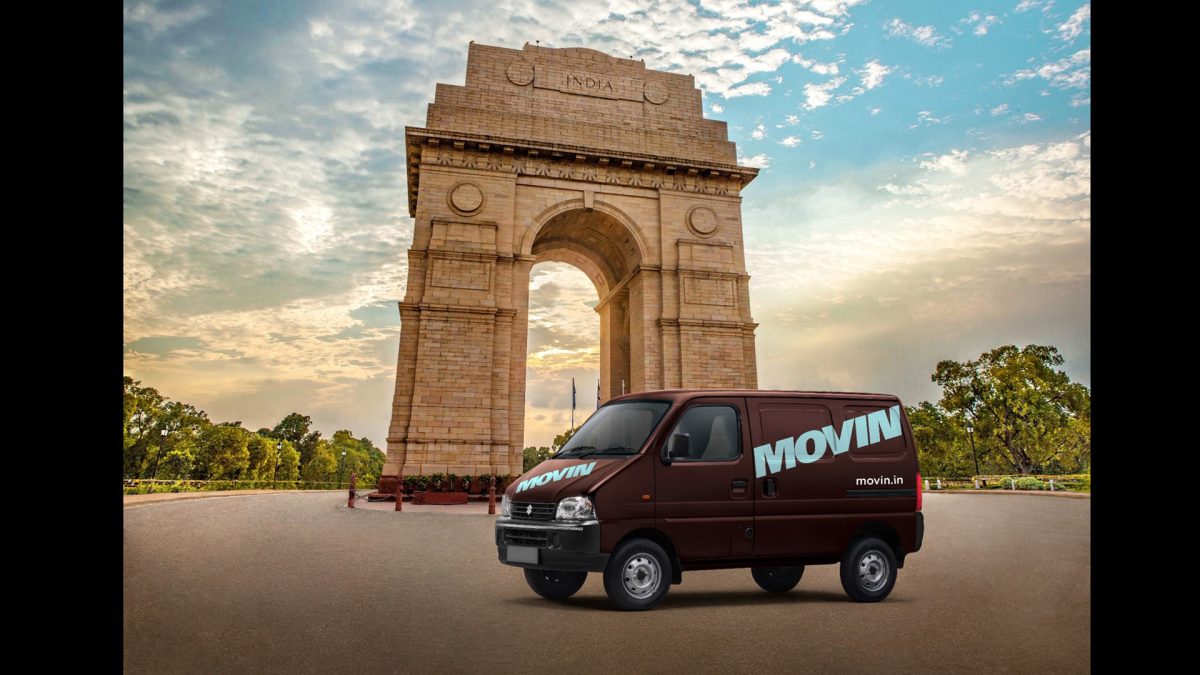UPS and InterGlobe Enterprises partnered to launch MOVIN, a new logistics brand in India. The name MOVIN is derived from the words Movement and India, and its services are designed for businesses with fast-paced operations. MOVIN’s B-2-B domestic services include day-definite and time-definite express services nationwide, backed by seamless integration across air and ground networks. MOVIN’s operations prioritize consistency, predictability, and responsiveness, allowing Indian businesses to achieve their ambitious goals easily.
In conversation with JB Singh, Senior Director, MOVIN Express, to know more about how this joint venture, UPS and InterGlobe Enterprises aims to set a new standard for logistics services in India.

What are the key challenges logistics companies have faced in 2022, and how have they adapted their operations to overcome them?
It is difficult to picture an economy without sufficient logistics and transportation for industry, agriculture, or transport. The promotion of commerce and seamless operations depend heavily on logistics. However, even the greatest logistics organisations face increasing challenges due to evolving technological advancements, shifting consumer demands, and constantly shifting legal requirements as time goes on. The logistics sector faces challenges in driving efficiency and reducing logistics costs, particularly in the mid and last mile. To address this, digitization is key. The National Logistics Policy highlights the critical role of technology in promoting seamless information exchange between drivers and businesses. The industry has recognised this challenge and has embraced digital technologies to optimize the supply chain network and reduce operational costs. By integrating technology into operations, the sector has found improved efficiency, transparency and ensures timely deliveries, ultimately benefiting the customers.
What trends do you foresee shaping the logistics industry in 2023, and how are companies preparing to stay ahead of the curve?
The logistics industry is expected to see increased adoption of emerging technologies, such as Z`automation, artificial intelligence and machine learning. Companies are preparing to stay ahead of the curve by investing in these technologies and exploring innovative approaches to logistics, including last-mile delivery solutions and sustainable transport options. As a result, the logistics industry is likely to become more efficient, cost-effective and environmentally friendly. Today, the inability to operate supply chains digitally is a major issue for MSMEs. These small enterprises acquire their raw materials from several groups of vendors, fragmented organisations, and even other SMEs. The widespread ad-hoc procedures used across conventional supply chains also pose a major challenge to MSMEs. These hurdles can be overcome by simplifying operations and increasing productivity, which demands adopting technology and building a digital presence. By doing so, India will provide traditional and small firms with access to new marketing tools, particularly e-commerce, which is essential for such firms’ expansion and long-term success. Also, as a result of such digitization, the country will be able to better focus on building youth’s skill sets to prepare them for jobs in the supply chains of the future and be able to roll out assistance programs more precisely, and also introduce small enterprises to new national and international markets.
With the rapid evolution of technology in the logistics industry, what specific training and upskilling initiatives have you implemented to ensure your employees have the necessary skills and knowledge to keep pace with the industry’s changing demands?
At MOVIN, we have recognised the need for skilled workers to drive growth and innovation in the industry. We offer training and certification programs, on-the-job training, apprenticeships, and continuing education opportunities to address the skills gap. These initiatives help our partners, employees, and customers gain practical experience, acquire new skills, and stay up-to-date with industry trends. We have a series of training modules for our partners, Customer service team, and employees. At MOVIN, we focus on tech enablement with our OJTs and soft skill enhancement on all our LMS platforms. Our focus is on building a complete ecosystem for ease of operations. By developing a skilled workforce, MOVIN is better equipped to meet the demands of a rapidly growing industry.
we recognize the importance of upskilling as a critical success factor for organizations in our sector. To achieve this, we have implemented a structured framework that ensures strict monitoring of all processes and provides comprehensive training to our workforce. Our program is backed by robust technical support and significant budget allocation. Upskilling has become our top priority, and we remain committed to maintaining our focus and discipline to stay ahead of the curve in our dynamic industry.
What role do you see ongoing training playing in retaining and developing top talent in the logistics sector?
In the logistics sector, ongoing training is critical in retaining and developing top talent. The industry continuously evolves. It’s crucial that employees stay up-to-date with the latest technologies and best practices. By investing in comprehensive training programs, companies can improve the skillsets of their workforce, ultimately enhancing their operations and delivering better results for their customers. Training also helps address skill gaps and talent shortages, ensuring a more resilient and adaptable workforce. Therefore, ongoing training is crucial in building and sustaining a successful logistics sector.
